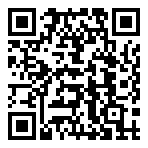Heart Rhythm Meditation (HRM) course
Are you interested in learning Heart Rhythm Meditation at no cost?
Are you interested in potentially participating in a study on the effects of Heart Rhythm Meditation on vagal tone and well-being?
If you are interested in learning Heart Rhythm Meditation, consider taking a six week zoom-based course offered on Thursday evenings from 5:30 to 6:45PM on January 27, Feb. 3, 10, 17, 24, and March 3 of 2022.
The Course: What is Heart Rhythm Meditation (HRM) and what will I be doing in the class?
Heart Rhythm Meditation (HRM) is an ancient form of meditation that integrates attention and awareness of body, mind, and emotions. In the practice of HRM one sits still and upright in a chair. One then puts attention on the full breath which is timed to synchronize with the heartbeat felt in the chest. The practice produces measurable physiological changes and research findings of a small pilot study of eight subjects done at the Hershey Medical Center suggest that those who practice HRM over a 10-week period show an increase in self-regulation and an increased sense of wellbeing that persists even when not meditating.
The course will present information on how to do HRM and will present information on the science of heart rhythm meditation, as well as some of the qualitative effects in people’s lives; one session builds on another. Each session will present a background lecture, primarily by Dr. Charles Palmer,and to some extent Dr. Elizabeth Tisdell (who is the primary investigator on the study). There will be some brief time to engage in the practice of HRM. These aspects of the sessions will be recorded over Zoom, though only the presenters will appear in the video. Participants can watch the recorded sessions over zoom if they are not able to attend the synchronous sessions. Participants will also have an opportunity to ask questions and engage in discussion in the later part of each session, though these aspects of the sessions will NOT be recorded. Any adult can participate in the Zoom course.
The study title is: The Effects of Heart Rhythm Meditation on Vagal Tone and Well-Being.
What is “Vagal Tone”?
Vagal Tone is how the parasympathetic nervous system contributes to cardiac regulation of the heartbeat, and is related to self-regulation of stress, as well as cognitive, emotional, and overall health. A way of measuring vagal tone is through measuring heart rate variability, which is accomplished by sitting or lying down, applying three EKG leads to the skin of the arms and lower abdomen, and measuring the EKG signal for 10 minutes.
What do I have to do if I want to participate in the study?
Anyone (over 18) who wants to participate in the study must:
-
- Attend or view all six zoom sessions of the course
- Agree to meditate 20 minutes per day for a 10-week period after the third-class session.
- Sign a consent form agreeing to:
- Come to the Hershey Medical Center to have your heart rate variability measured by applying the three EKG leads to the skin for a 10-minute interval, and to fill out a 19-item questionnaire related to well-being both at the beginning and end of the study.
- Participate in a focus group interview at the end of the study.
The number of people who can participate in the study is limited. Those interested in participating should contact either Branka Lukic via email at blukic@pennstatehealth.psu.edu, or via phone at 717-531-7067, or Dr. Elizabeth Tisdell, at ejt11@psu.edu.

